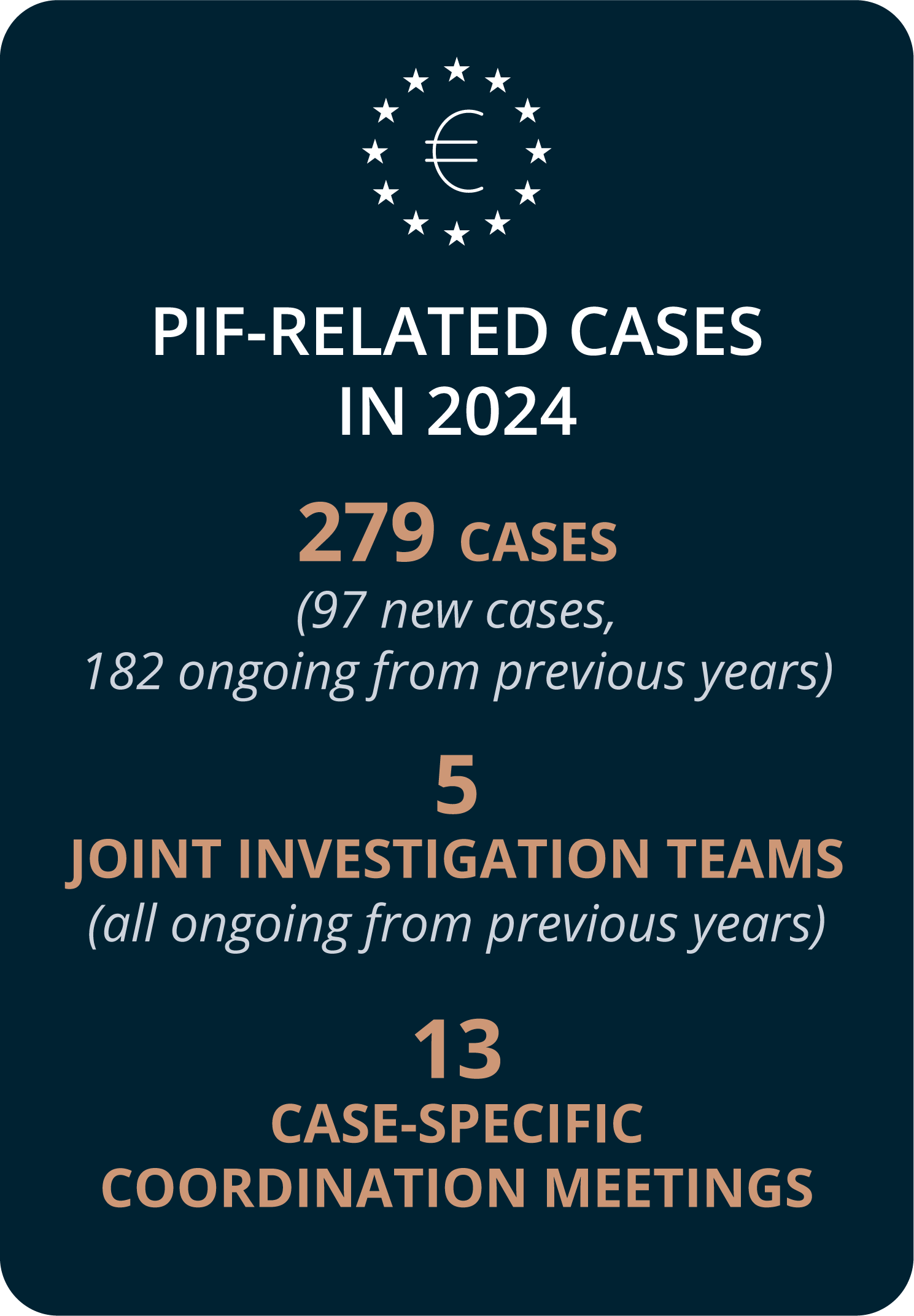
Crimes against the financial interests of the European Union (PIF crimes, as defined in Directive (EU) 2017/1371) not only affect the Union’s financial interests but they also harm its reputation and credibility. These crimes include fraud related to the EU budget, large scale VAT fraud affecting two or more Member States, corruption, misappropriation of assets committed by a public official, and money laundering involving property derived from these crimes.
Eurojust has established and maintains close relations with the European Anti-Fraud Office (OLAF) to investigate these types of crime. OLAF is a body of the European Union dedicated to conducting (external and internal) independent administrative investigations into fraud, corruption and irregularities involving EU funds and developing EU-wide policies to counter fraud.
Eurojust also cooperates with the European Public Prosecutor’s Office (EPPO). The EPPO is an independent, decentralised prosecution office of the European Union with a mandate to investigate and prosecute the perpetrators of crimes affecting the EU budget committed in the 22 Member States that are participating in it. Eurojust and the EPPO have concluded a working arrangement covering operational cooperation, institutional relations and administrative matters.
